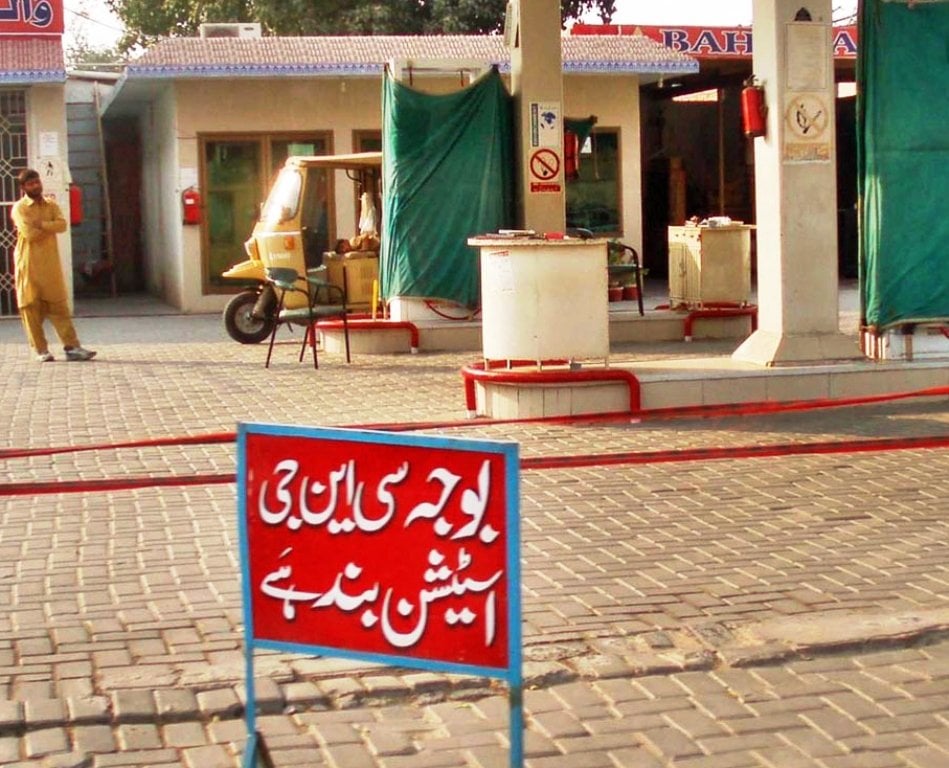
Prime Minister Nawaz Sharif on Thursday decided to put on hold the planned increase in gas prices till the end of Ramazan, a move which appears to appease the masses and powerful lobbies.
The prime minister made the decision at a high level meeting he chaired on the gas shortfall in the country at the Prime Minister’s Office.
The Pakistan Muslim League-Nawaz government was supposed to implement new gas prices from July 1, as per the set procedure. However, this has now been delayed.
Sources told The Express Tribune that the ministry of petroleum tabled different options to increase gas prices for Compressed Natural Gas (CNG) consumers, fertiliser manufacturers and captive power plants to bring them at par with alternative fuels. It was proposed to Nawaz to exempt domestic gas consumers from the hike in prices and shift the burden of cross subsidies on CNG, fertiliser and captive power plants.
The prices of CNG are already high, but the gas rates for fertiliser manufactures and captive power plants are less, which has created distortion in the pricing mechanism.

However, the premier directed the rise in prices to be put on hold till the end of Ramazan.
The petroleum ministry had proposed to hike CNG prices by bringing it at 85% parity of petrol. This would help provide 15% relief to consumers. Officials said the meeting was told that the CNG sector could survive only if Liquefied Natural Gas was imported to provide gas to the power sector. The current price of CNG is Rs656.52 per Million British Thermal Unit (mmbtu).
The ministry also proposed to increase prices of gas for captive power plants at such a level that it should be higher by 20% compared to furnace oil prices. Sources maintained that captive power plant owners would still prefer to use gas if its price was maintained at the furnace oil parity, the reason being that gas was a clean fuel and there was no cost to establish storage facilities compared to furnace oil.
For fertiliser manufacturers, the petroleum ministry proposed that its price should be increased by four times as its price was the lowest. At present, fertiliser manufactures are paying Rs67.38 to Rs123.41 per mmbtu, while getting an annual subsidy of Rs11 billion. But, Premier Nawaz was informed that its impact was not trickling down to farmers and the subsidies were landing in the pockets of fertiliser manufacturers.
Regarding the acute gas shortage plaguing the country, the meeting at the Prime Minister’s Office was informed that the country was facing 2 billion cubic feet per day (bcfd) of shortfall which would further widen if new gas fields were not discovered and gas imports not ensured. Regarding this, the prime minister directed those concerned to find a quick solution to importing LNG to overcome the energy crisis.
Meanwhile, according to a statement, Prime Minister Nawaz has said all resources need to be exploited to overcome the gas shortfall. Regarding this, he said options to import gas from neighbouring countries need to be examined.
Published in The Express Tribune, June 28th, 2013.
COMMENTS (3)
Comments are moderated and generally will be posted if they are on-topic and not abusive.
For more information, please see our Comments FAQ











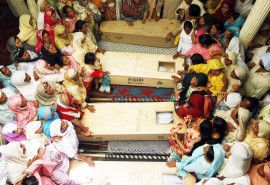



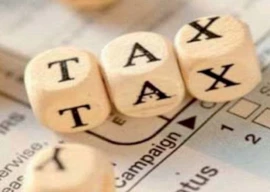
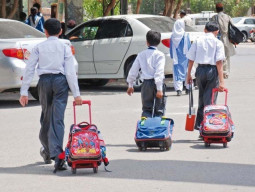

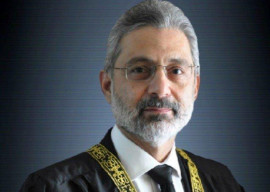






















Your broke but refuse to raise taxes, cut subsidies, or do anything else that might offend voters - not much different than the PPP (which says it all).
@ faisal..........read aarticles and newspapers........Cng is on last priority (and previous government did it )
The way gas is wasted by house hold consumers, it is prudent that prices for house hold consumers is also increased. How will increasing the gas prices to fertilizer sector benefit the farmers when all these plants will do is to pass on the increase to the end users. There should be some control mechanism linking the urea price to input prices (natural gas).
Also the longer we wait in increasing the prices of CNG, the longer the issue will persist. Was this not the mantra of the previous government to wait on one pretext or another, instead of increasing the prices immediately?
Need to get the priority right and take immediate steps based on these priorities. Given the economy situation priority should be gas to the power sector, followed by fertilizer, house hold and lastly CNG.